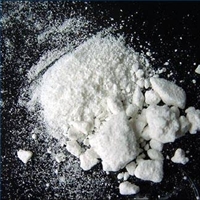 The University of Maryland School of Pharmacy has just received a prestigious $3.7 million grant to develop a drug which would treat cocaine addiction. The drug is based on a molecule originally discovered in the extract of Chinese herbs. Jia Bei Wang Ph.D is a professor of pharmaceutical science and was awarded this grant, the largest ever given by the NIH, National Institute of Health.
The University of Maryland School of Pharmacy has just received a prestigious $3.7 million grant to develop a drug which would treat cocaine addiction. The drug is based on a molecule originally discovered in the extract of Chinese herbs. Jia Bei Wang Ph.D is a professor of pharmaceutical science and was awarded this grant, the largest ever given by the NIH, National Institute of Health.
Wang and her collaborators from the University’s schools of pharmacy and medicine will develop a drug from a compound called l-tetrahydropalmatine (l-THP), which is the active ingredient in some Chinese herbal medicines. Under the grant, the team also plans to conduct human trials to test the effectiveness of the new drug. If proven effective, it will be the first drug developed from Chinese herbs and approved in the United States, and possibly anywhere in the world, to treat cocaine addiction.
Congratulations go to Dr. Wang and her team for receiving the grant. We look forward to the results five years from now. We’ve always known Chinese herbs can treat a myriad of diseases, from PMS, insomnia, pre-diabetes to alcohol addiction. Dr. Wang has extensively studied the Chinese research on 1-THP and six months ago she provided IDA with samples produced in China. The agency found it to have a unique profile, says Wang. “Chinese medicine is a big treasure box, which I always had in mind as a possible resource to treat drug addiction,” she says
“Cocaine addiction is a major health concern in both urban and suburban communities and l-THP may be the first effective medication for the treatment of cocaine abuse and addiction approved in this country,” says Natalie D. Eddington, PhD, FAAPS, dean of the University of Maryland School of Pharmacy. “Dr. Wang’s clinical research is critical and timely, and if successful, it will augment and strengthen the cognitive-behavioral approaches used currently to treat cocaine addiction.
more info here: http://www.oea.umaryland.edu/communications/news/?ViewStatus=FullArticle&articleDetail=10555

